Can "Flower Slippery Queen" break through the dilemma of being cold in Russian movies?
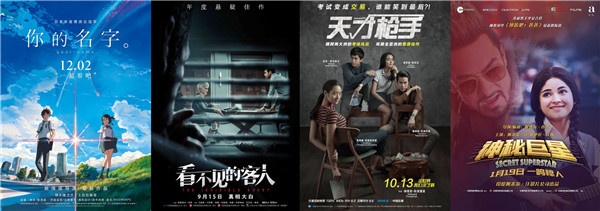
Special feature of 1905 film network In the past two years, we can see movies from all over the world on the big screen, from Aamir Hussain Khan to Thailand, and from Japan to Spain. These movies are more and more popular in the mainland.
However, movies from one country are introduced almost every year, but the popularity is not as good as the above, that is, movies from neighboring Russia.
Russian films failed to explode in China, and none of them broke 100 million yuan.
On the whole, there are many kinds of fighting national films imported from the mainland. From science fiction and magic to action love, we have seen almost every theme in the cinema. But it must be said that the influence of Russian films in China is far less than that of the old Soviet films in the last century.
Let’s look at the performance of Russian movies from the box office results first. At present, the top ten Russian films released in China are as follows:
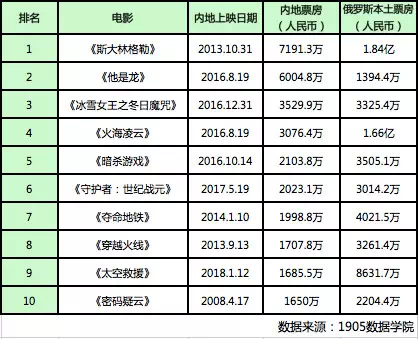
(Note: The box office in Russia is in rubles and converted into RMB)
And in Russia, the domestic film box office ranks in the top ten:
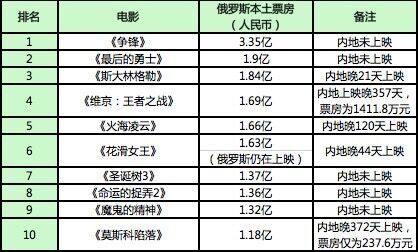
(Note: Because the exchange rate of Russian coins changes greatly, the version used in the box office ranking of film history is in rubles. Finally, it is converted into RMB for display. )
The ticket price for watching a movie in Russia is about 300— Between 400 rubles, converted into RMB, it is about 30-40 yuan, and there is little difference in movie ticket prices between the two countries. From the box office ranking, there are only two films that overlap in these two lists, Stalingrad and Ghost in Fire, but in fact, Viking: The Battle of Kings and The Fall of Moscow are also released in China. These four films have been shown in China in a scuffle with many films. The first two films are mainly about action, while the last two films are mainly about history and science fiction.
Judging from the top ten films in China at present, the action and fantasy themes in Russian films are more popular with mainland audiences. At present, the box office trend of Stalingrad, which has the highest box office, is higher in the first three days, and reaches its peak on the third day, but the heat is not more than three days.
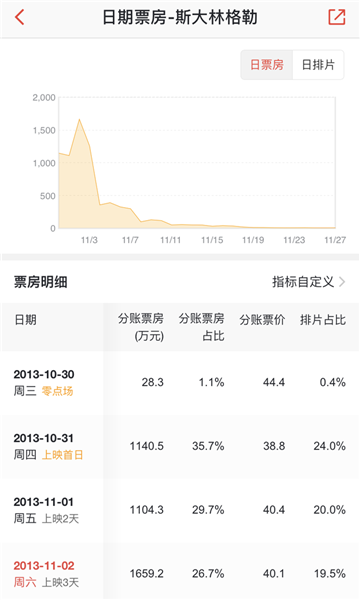
These films, Space Rescue, Fire and Lingyun, and He is a Dragon, also encountered the same "dilemma". Scheduling is also often squeezed by films of the same period — — "Space Rescue" is a typical example. In the same period, the "left-right attack", only 6.9% of the films were arranged on the first day, accounting for 2.6% of the box office, and almost no films were arranged in less than a week. .
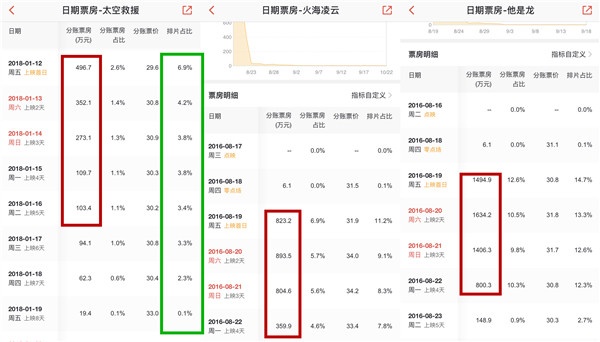
It can be said that the release of Russian films in the mainland does not have the advantages of Hollywood blockbusters, nor does it last as long as the experience of word-of-mouth fermentation in Indian films, and its fate is relatively bumpy. One of the most important reasons is the cultural differences. Many Russian films are concerned about their own historical wars, which are far from the historical and cultural background of China audiences and cannot resonate.

Viking, which tells the story of Vladimir I, did not perform well in the mainland.
The Flower Slippery Queen, which was released in Russia this year, has now rushed into the top ten box offices in Russia, and set a box office record for the first week in Russia, and is also the box office champion in 2018 so far.
The film was released in the mainland on March 30th. In the film "The Flower Slippery Queen", there are many passages that show the changes of the protagonist’s life through aria, such as the heroine’s life in boarding school and the process of rehabilitation training later.
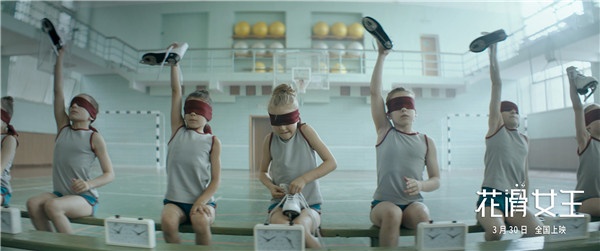
However, the original 113-minute duration of the film was cut to 89 minutes. According to the staff of the film, the cut of the film is precisely this type of paragraph, that is to say, at least six original singing paragraphs in "The Queen of Flowers". The reason for this is that the audience of song and dance passages in the mainland is relatively narrow, and the acceptance is not as high as other themes such as action.
In fact, musical films have been introduced to the mainland, but the results are not very good. The previous Oscar hit films earned 247 million yuan at the box office, but at the same time, they also encountered the phenomenon of word-of-mouth and box office upside down. Many of the singing passages in "The Queen of Flowers Slipping" will make most audiences flinch, especially in Russian movies which focus on war action. This genre is not outstanding enough. It is easier for many viewers to reduce this part of the content without affecting the understanding of the plot.
The change of Russian film style gradually caters to Hollywood aesthetics.
When it comes to Russian movies, we will naturally talk about the former Soviet Union. Before the disintegration of the Soviet Union, film has always been a pillar industry of the economy, and the film development of the former Soviet Union and Russia is closely related to the current domestic situation.
In the 1930s and 1940s, movies tended to be about revolutionary construction. In the 1950s and 1960s, they paid attention to the lives of ordinary people, and the types became more and more abundant. In the 1970s and 1980s, they mainly focused on military, patriotic and political themes. Before and after the disintegration of the Soviet Union in 1991, films reflecting history and social reality reappeared.
After the disintegration of the Soviet Union, the economy collapsed, but Russian films are still an important inheritor of the film tradition of the former Soviet Union. However, for a long time, most Russian-made films were rarely shown in cinemas. Instead, commercial films from other countries occupied a large number of Russian cinemas.
The main reason is that American commercial films are easier to make money than Russian-made films, and a series of films like "Star Wars" in The Avengers have far surpassed domestic films at the box office in Russia. In addition, the quality of most Russian films is actually not good, and there are not many audiences. Many films are sold directly to TV stations to avoid losses after shooting.
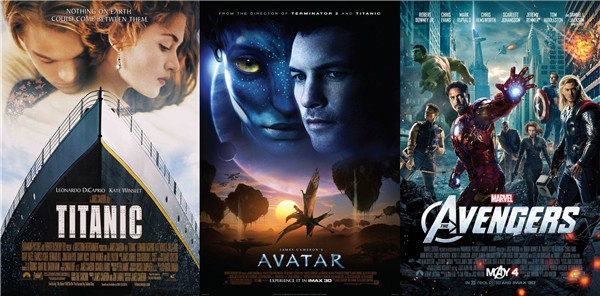
After the disintegration of the Soviet Union, the number of people engaged in the film industry plummeted by 200,000, and the annual output was only 20-30. After more than ten years of slow development and policy support, the situation of Russian films has gradually improved, which is mainly divided into three aspects.

First, domestic films began to learn from Hollywood and cater to Hollywood aesthetics, such as "Death Subway" and other films; First, a series of classic old films such as Stalingrad have been remake; There are also a large number of domestic filmmakers whose works have returned to the society to point out the symptoms, and their realistic style has helped them win awards in the world.

At present, many Russian films made in China are not shown in other countries. On the contrary, realistic films are more popular in the world, but these films are not selling at home.
The film style of the former Soviet Union has far-reaching influence, and the film festival has won numerous awards.
Nowadays, internationally renowned Russian films are more influenced by the films of the former Soviet Union. The former Soviet Union, a master director born in history, is not a minority, and Sergei Eisenstein, as we know him, is a pioneer of world movies. At the same time as Eisenstein, lev kuleshov, Vsevolod Pudovkin and dziga vertov all made great contributions to the world film theory.
Remember the montage that Xiaogang Feng once mentioned when he scolded film critics? Eisenstein is a representative of Montage School, and he is also the father of Russian film. As a master of montage style, his works such as alexander nevsky have raised the film art to an unprecedented height.
Later, several well-known movie master were born in Russia, namely Eldar Ryazanov, nikita mikhalkov, alexander sokurov and andrei tarkovsky. However, the works of these directors are rarely shown in the mainland, and most of them are shown during the Beijing and Shanghai film festivals.
Riazanov is a master of comedy, and his Song of the Cavalry has its own unique style, which pays attention to the life of ordinary people and makes people see the essence behind the comedy. How hot is he in Russia? "Everyone knows" is enough to describe him.
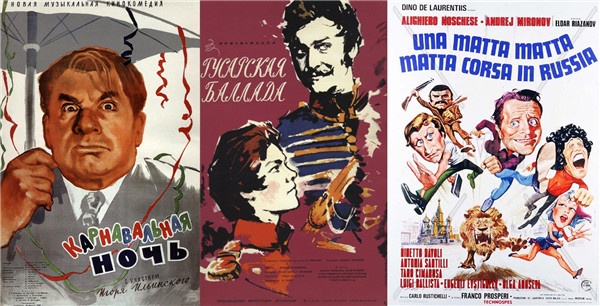
It is worth mentioning that The Story of the Office was shown in China in 1985, and the response was extremely enthusiastic. Shi Hang once commented on the director as "we are Chekhov of the times". Another of his works was shortlisted for the main competition unit of Cannes Film Festival.
Director nikita mikhalkov is known as the Russian Steven Allan Spielberg. His films are characterized by criticism of social problems, humanistic care, exploration of film art and varied techniques. Among his masterpieces, he won the Golden Lion Award at Venice Film Festival, nominated for the Oscar for Best Foreign Language Film, and won the Oscar for Best Foreign Language Film and the Cannes Film Festival Jury Award.
In addition, he has also filmed The Barber of Siberia and the classic remake 12 Angry Men: The Grand Judgment. He has been active in the international film industry and served as the chairman of the jury of Beijing International Film Festival and Berlin Film Festival. And in the forefront of Russian film charts, "Fighting for the Front" and "Fire in the Sea" are all produced by him.
Andrei tarkovsky can be said to be a very important director in Russian film history. His film language is like a poem, the theme is often very grand, but the narrative is very heavy, but the content expressed is evaluated by ingmar bergman, a Swedish movie master as "creating a brand-new language loyal to the nature of the film, capturing life like a mirror image and a dream." Of course, this shooting technique and perception have something to do with Tarkovsky’s own life, not to mention his father is a poet.
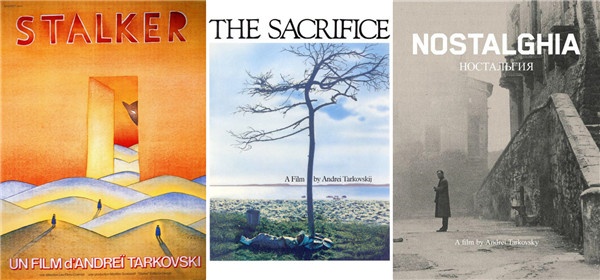
All the films directed by Tarkovsky won different awards at Cannes Film Festival, while they won the Golden Lion Award at Venice Film Festival. These films all have distinct author’s film style, which is highly speculative in philosophy.
The director alexander sokurov’s long-shot shooting and the attention of the film theme are generally considered as the inheritors of Tarkovsky’s spirit. At the same time, he is also the darling of three major European film festivals, and his works Moro God, Pressure Shanna and Louvre under German occupation are all shortlisted.
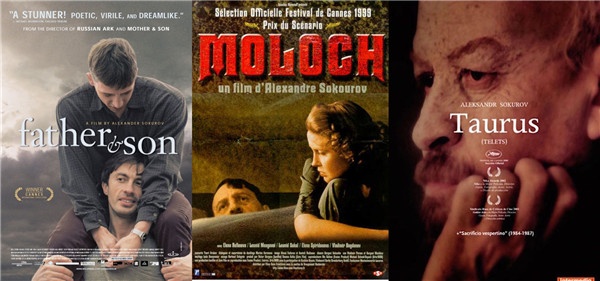
The attention to the real social problems and the unique director style in these master works have always influenced the subsequent Russian film works. After the disintegration of the Soviet Union, the development of films was not as good as before, and there were still some directors who insisted on the special care of Russian films despite the poor quality of domestic films.
Among them, andrey zvyagintsev didn’t start directing movies until after the Millennium, and the number of his works is small, but it can be said that all the ministries are excellent. The debut film "Return", which focuses on the relationship between father and son, won the Golden Lion Award at Venice Film Festival in one fell swoop, and won the award in Cannes, which tells the contradiction between the individual and the government. It is also a popular film in this award season.
In addition, Alexei Germanic and his son are also high-profile directors. Among them, George W. Aleksei German has been shortlisted for three major European film festivals for many times.
Russian film actors can’t tell the audience that they have to drink when watching movies.
For Russian movies, I believe many viewers have a confusion, that is, many actors can’t remember their names clearly, and they all look the same. So we don’t know who is particularly popular in Russia at all. In fact, we can find several figures in several films with higher box office.
For example, actor danil kozlovsky and actress Svetlana Khodchenkova in Viking: The Battle of Kings are very popular in Russia. Both of them were born in 1980s. In addition to Viking, Daniila also appeared in many works, such as Ghost in Fire, Dove Latov and so on, while Kudkinkova appeared in the films, such as Desperate Subway, Tinker, Tailor, Soldier, Spy and so on.
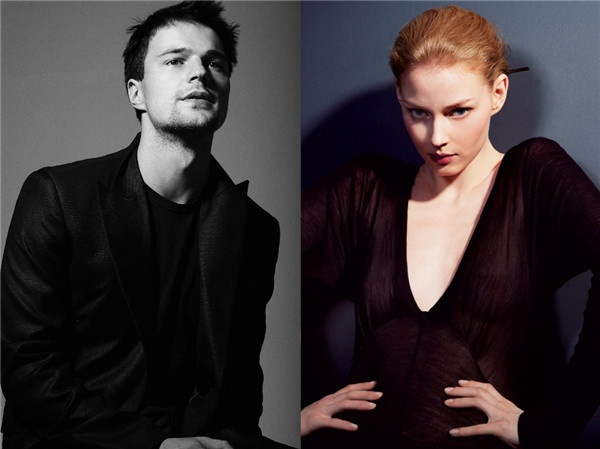
However, Anna Shurochkina (), maria sharapova () and matvey lykov ("He is a Dragon") are definitely among the young Russian actors with high face value.

Of course, there are many Russian actors who are of a theatrical level, such as Andrei Myagkov in The Story of the Office, Oleg Tabakov in the film and Vladimir Mashkov &hellip in Fighting for the Front; … Every movie fan has his own PICK.
However, for most domestic audiences, Russian actors have the same name and look alike.

Speaking of actors, I have to talk about what it’s like to see a movie in Russia. Except that the ticket prices mentioned above are similar to those in China, the products sold in cinemas are similar to those in China. Only for the fighting nation, there is one commodity that cannot be lacked, and that is wine. According to friends who went to Russia to watch movies around Xiao Dianjun, some Russian audiences will go to the cinema with beer, but during the movie, the atmosphere is still good, and they will be amused by the plot of the movie and occasionally discuss it in a low voice.
So, how much do you know about Russian movies? What is your preferred Russian movie?